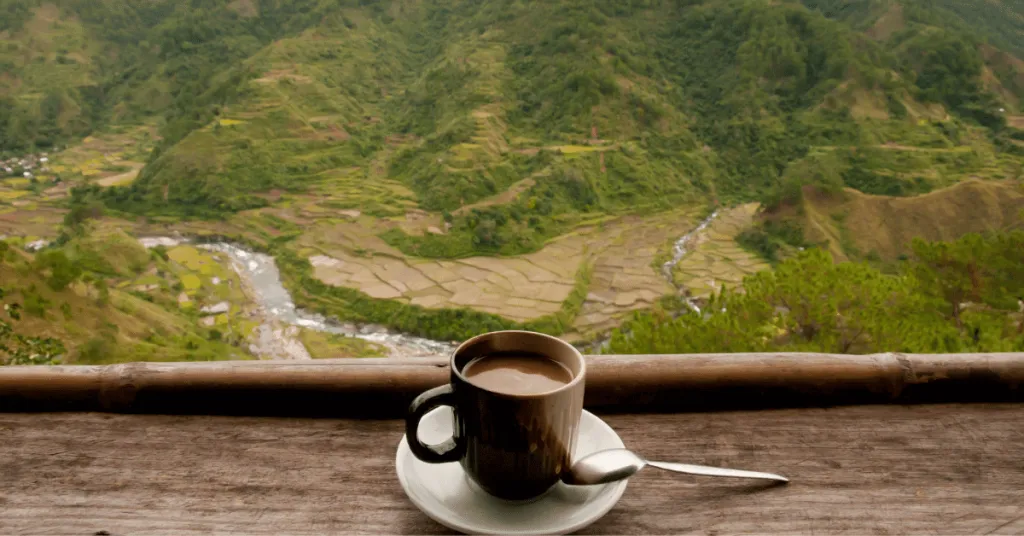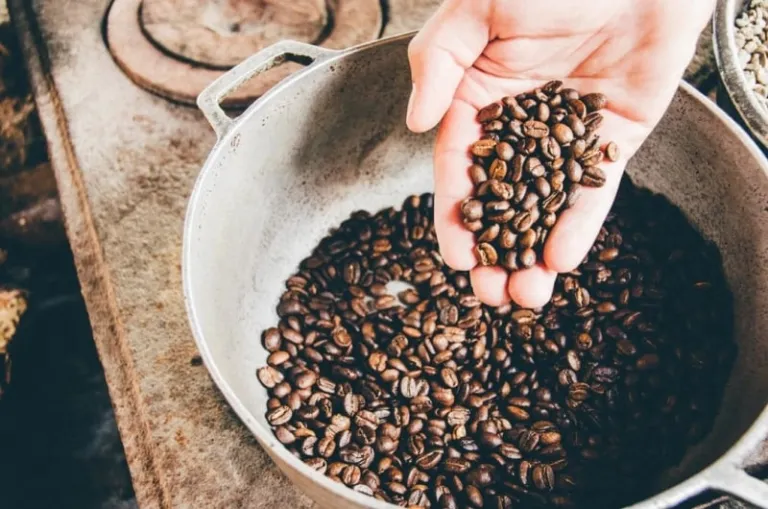Our favourite places to stay on this sleepy Cebu island.
Coffee Culture in the Philippines & Where to Find the Best Brews

It was a chilly December morning when I first tasted coffee. The breakfast table looked like it always did: scrambled eggs on a plate, a paper bag of warm pandesal, hot dogs on the side, and the day’s newspaper spread across the table. At the head sat my dad, with my mom to his right — and in front of each of them, a steaming cup of coffee.
“Dad, may I taste?” I asked, almost pleading.
Up until then, I’d always been met with the same responses: “You’re too young.” “It’ll stunt your growth.” “Coffee is for adults only.” But as a five-year-old desperate to grow up, I couldn’t wait to try the drink my parents seemed to rely on every morning.
With a smile, my dad slid his mug toward me — his second serving of freshly brewed barako, dark and steaming. He gave me a knowing look.
“You don’t have to like it,” he said gently.
I took a sip, eager and defiant. And then I spat it right back out. My parents were right after all: I was far too young then to appreciate the bitterness of a beautiful cup of coffee.
Also read: 15 Countries With a Coffee Culture Worth Travelling For
“Kape tayo?”
Fast forward to a decade and a half since my first cup of coffee: I am now what you call a recovering coffee addict. And, I now have a deeper understanding that coffee, for many Filipinos like myself, plays a huge role in our daily lives.

“Kape tayo,” is an invitation that’s usually considered a high form of endearment. Coffee keeps us alive, brings us comfort during gloomy days, and even encourages deep conversation. It’s as much a staple for a casual Pinoy breakfast as it is for a huge meeting.
Drinking coffee has become a habit for many — so much so that we tend to forget that what we consume has a long and valuable history. And, unknown to most, our coffee culture in the Philippines deserves our attention now more than ever before.
A brewing problem
In the world, Filipinos are some of the biggest consumers of coffee. But ironically, for a country with a perfect profile for coffee farming, the Philippines is also among the top importers of both soluble (instant coffee) and green coffee beans.
Many studies point to the irregularity of coffee harvests and the instability of profit as the major sources of loss for our coffee industry. To stress the gravity of this situation, filmmaker Franco Dubini produced a video, The Dark Side of Coffee, which revealed stories of local coffee farmers being forced to sell a kilo of beans for as low as ₱3. With the dwindling promises of the coffee culture in the Philippines, several of our coffee farmers have shifted to farming crops that yield more frequent harvests.

Amidst the COVID-19 pandemic, coffee farmers face even more hurdles. Tere Domine, Co-Founder of Kalsada Coffee, shared that many “still have unsold coffee from the previous harvest and cooperatives have stopped purchasing more coffee this year.”
Tere explained that this poses a huge problem for individual coffee farmers, who are now at high financial risks. “The reality is that there is a possibility of (farmers who produce food going hungry) because cash flow at the farms has been low since the pandemic and it doesn’t look like it will be better soon.”
In the same Facebook post, Tere urged people to support local coffee farmers by purchasing bags of coffee, particularly Robusta, because that is what coffee farmers have most of in stock.
Where to find the best brews
With the rising issues in our coffee industry, more and more organisations are recognising the value of our local farmers. One of them is Kauman Sulu Coffee by Herman & Co., a distributor of Sulu coffee.
“(Our production) has always been a way of giving back to the Tausug community,” Kauman Founder Dinjo Constantino shared with TripZilla Philippines. “It’s buying coffee from farmers and helping them raise their families and providing them with a sustainable income. Our vision is for all farmers to just stay in their farms, hence our mantra of #FarmsOverArms.”
When it comes to finding the best brews, Dinjo advises us to always look for the stories behind them. Most of the time, sustainable and ethical coffee brands will have the origins marked in the packaging. For Kauman, you will see that it’s the Tausug farmers that “harvest and pick the red cherries to bring out the best flavour of the coffee.”
Also read: 7 Farm Experiences Near Manila for Your Next Weekend Escape
If you’re scouting for local coffee brands yourself, here are some that our team personally trust:
1. Farmers’ Coffee
A premium quality coffee product of Senator Ninoy Aquino, Sultan Kudarat, Farmers’ Coffee adopts “the chemical-free and good agricultural practices (GAP) to ensure natural growth and production.” The local coffee farmers meticulously harvest and select ripe berries from Batilo Farm. Aside from the Robusta-Arabica blend, the brand also offers pure varieties, specialising in the native Robusta.
For more information, contact Batilo Enterprises proprietor Jonah Valenzuela Batilo at 09308758661 or bfarmers.cofee@gmail.com.
2. Kalsada Coffee
Partnering with local farmers, Kalsada is committed to elevating the coffee culture in the Philippines. Over the years, it has built and developed its mills in Sitio Kisbong and Belis (Benguet) and Pigtauranan (Bukidnon). Kalsada now sources their beans from these mills while making sure they pay farmers above fair trade prices.
3. Yagam Coffee
Sourcing beans cultivated by indigenous people of Benguet and Mountain Province, Yagam Coffee boasts “the finest arabica coffee in the Cordillera region.” Enforcing the agroforestry system, Yagam Coffee is naturally grown under indigenous shade trees.
4. The Dream Coffee
Working together with T’boli farmers from South Cotabato, The Dream Coffee roasts 100% single estate, single-origin Arabica coffee. Making sure each batch is freshly roasted with chocolate and caramel notes, the brand produces coffee in small batches.
5. Yellow Turtle Coffee
Davao is a treasure trove of coffee products; Yellow Turtle Coffee offers us a taste of those. Sourcing Arabica beans from Mount Apo, the brand supports the Balutakay Coffee Farmers Association (BACOFA), a group of smallholder coffee farmers in Sitio Pluto.
Honourable mentions:
Barako-Eh
Bo’s Coffee
BrewsCo
Cocotos Estate
Habitual Coffee
Jack And The First Crack
SGD Coffee
Also read: 50 Cafés & Stores Offering Coffee Delivery & Pick-up in Metro Manila
While you might have your go-to coffee brands already, why not take your love for coffee to the next level? Embrace the coffee culture in the Philippines. Advocate for ethical and sustainable farming. Support local farmers.
A cup of coffee is never a shallow thing — and for a country like ours, the origin of one brew either makes or breaks tradition, culture, and life.
Published at
About Author
Danielle Uy
Subscribe our Newsletter
Get our weekly tips and travel news!
Recommended Articles
10 Bantayan Island Resorts, Hotels, and Rentals for Your Tropical Escape 10 Best Banawe Restaurants for a Mouthwatering Food Trip in QC The promise of new flavours beckons from Banawe.
14 Best Credit Cards for Travel in the Philippines The only plastic we need for travel.
10 Best Mountain Cafes in the Philippines for Your Peak Coffee Experience Coffee date on the mountains, anyone?
10 Cutest Cafes in Japan That Are Totally One of a Kind From Pikachu snacks to Totoro cream puffs, here are 10 themed cafes in Japan that prove café hopping should be part of your travel itinerary.
Latest Articles
BGC Master Plan Refresh: What Filipino Travellers Can Expect City upgrade insights
Here Is Where To Buy Viral Dubai Chewy Cookies In Manila The Dubai chocolate trend isn't dying... it's evolving!
Quezon City to Caloocan in Minutes: MRT-7 Sets 2027 Opening Date for 12 Stations No more 2-hour traffic?
Hainan, China Visa-Free For Filipinos: The Ultimate 7-Day Haikou, Lingshui, and Sanya Family Itinerary Hainan is now visa-free for Filipinos! Explore "China’s Hawaii" with this 7-day budget guide covering Haikou, Lingshui, and Sanya without breaking the bank.
Bahong Sunflower Farm La Trinidad: Entrance Fees, Commute Guide, and Travel Tips This is the perfect spot for romantic dates or photoshoots!


